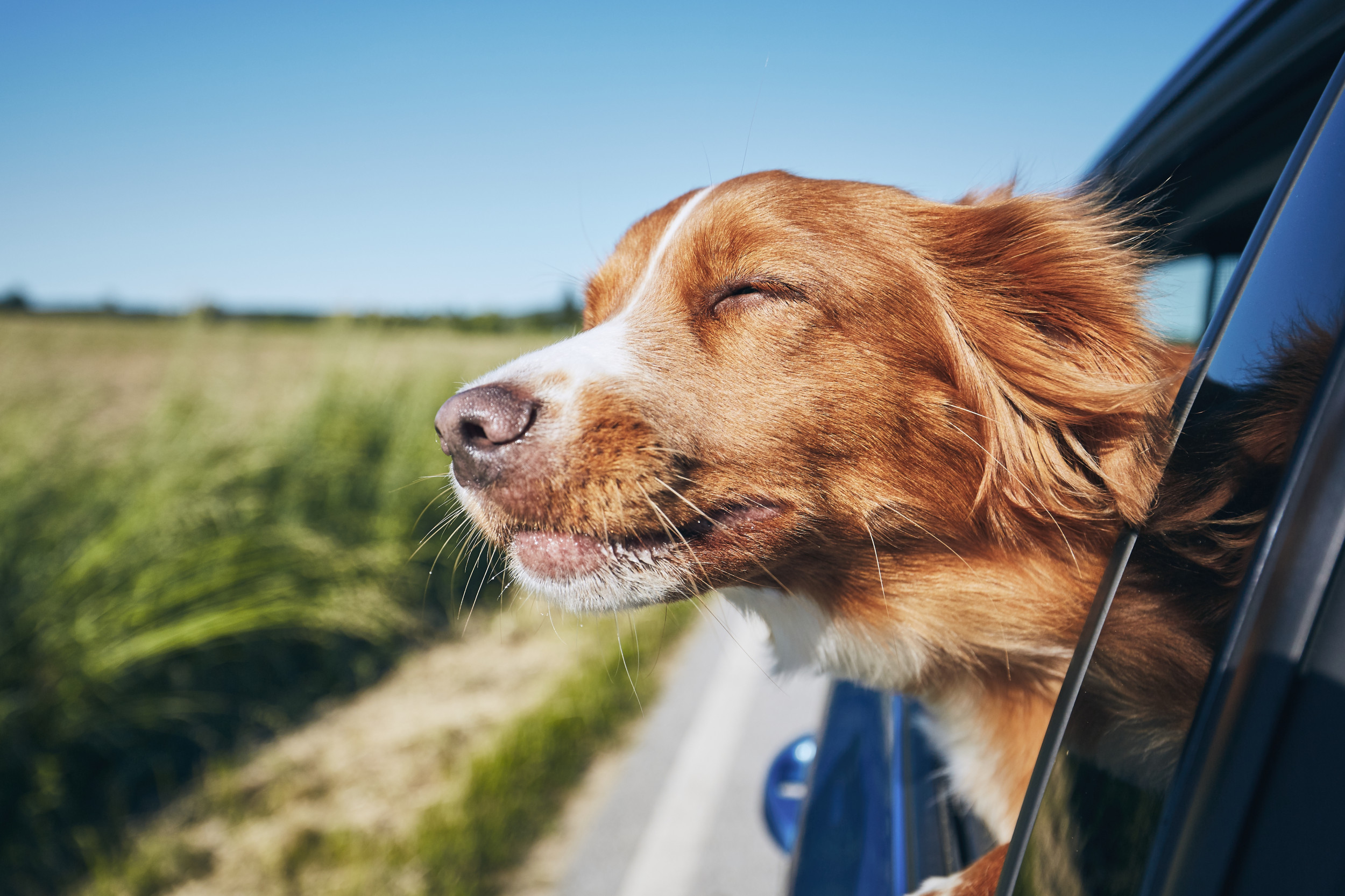Why does my dog whine in the car? If you’ve ever taken your dog on a vehicle journey, you’ve probably observed some whimpering or weeping. While you would believe that taking your dog for a vehicle journey is a fun experience, it isn’t always the case. There are several causes why your dog is behaving in this manner. We’ll look at the more prevalent causes of your dog whining in the vehicle and what you can do about it.
Whining and whimpering in the vehicle is a regular occurrence for many dogs, and it may be annoying and frustrating for the driver. The fear or worry of the journey itself might be the source of the emotions.
Travel sickness, irritation, worry, and even previous poor experiences with automobile journeys might all lead a dog to whine. Come along as we highlight this below:
Why Does My Dog Whine in the Car

The following are the reasons why your dog whines in the car:
Anxiety or apprehension
While urgent, rising whines are often due to enthusiastic eagerness. It’s also likely that he’s becoming worried and afraid. This is especially true if his usual vehicle travel includes a trip to the vet, stylist, kennels, or any other location where he will get separated from you.
Have you ever observed that dogs appear to have a built-in Navigation system while you’re traveling with a whimpering dog in the back seat? The whining becomes louder and more persistent as you approach closer to your goal. Simple vehicle journeys may turn into a test of your dog’s endurance.
Your dog has a case of motion sickness
When you’re in the vehicle with your dog, they can become car sick. Whenever it comes to travel sickness, dogs are exactly like us. Your dog’s tummy may be disturbed due to travel illness.
To assist your dog recover from motion sickness, open a window and let some cool air in. You may also bring your dog forward so that they might gaze out the front panes. Your veterinarians may also write prescriptions to aid your dog if they are experiencing motion sickness.
Your dog is irritated and stressed out.
Because a vehicle is a very confined environment for a dog, there may be some tension during a car journey. Your dog may get restless in a cramped environment on extended flights, causing stress and unhappiness.
Try to open a window for them to gaze out of so they may get entertained. You may also attempt to bring several toys your dog enjoys for the journey since this will divert attention away from the ride.
Your Dog Can’t Cope With His New Environment
It’s often more straightforward than you think to figure out why your dog is whimpering or weeping in the vehicle. Your dog may just be overwhelmed by the new odours and images and unable to cope with its new environment.
How to Stop a Whining Dog in the Car

If your dog is whimpering persistently in the car, try to figure out why before you attempt to correct the problem. Some folks are unconcerned by a bit of complaining now and again.
On the other hand, others can scarcely stand it and find any amount of moaning about being overwhelming and irritating. The remarkable thing is that you can teach your dog to moan less or stop whining altogether. These include:
Keep your dog in a carrier with a cover
If you keep your dog in a crate and leave it enclosed while driving, you may be able to minimize or reduce whimpering. Because unfamiliar odours and situations might be overwhelming for some dogs, covering the crate is a terrific choice.
The crate cover is also beneficial since it gives protection and safety, which may assist in soothing and resting your dog.
Give a Complimentary Treat to Your Dog
Give your dog a unique reward to divert their focus away from the road. Additional compensation is an excellent method to shift focus away from the trip. A further compensation serves as a reinforce for your dog, associating the vehicle journey with goodies and happy memories.
Make an enjoyable environment for him.
To aid him in relaxing, throw his preferred duvet and toys in the rear. Kong’s packed with sweets are another fantastic diversion that may help shift his focus away from the back of your head.
Resist the urge to give in to your dog’s pleading and whimpering.
Excessive whimpering may usually be controlled with basic training, mental concentration, and exercising. If the habit gets prolonged to adapt, you may have to enlist the assistance of a trainer or cognitive-behavioral therapist.
However, if you’re diligent and regular no matter what, you’ll be more likely to get the outcomes you want. You may not be able to eliminate your dog’s whimpering, but you’ll be able to reduce it to a more manageable level.
Frequently Asked Questions
Why does my dog whine in the car?
The following are the reasons why your dog whines in the car:
- Anxiety or apprehension.
- Your dog has a case of motion sickness
- Your dog is irritated and stressed out.
- Dog Can’t Cope With His New Environment
How can I get my dog to rest in the vehicle?
Before the journey, restrict your dog’s water and food intake for a few minutes. Ask your veterinarian about travel sickness or anti-anxiety medicine. To reduce tension, walk your dog around 20 minutes before your travel. Dog scents may also get sprayed in the automobile.
Why do puppies despise going on vehicle rides?
Your dog may dislike vehicle drives for various reasons, including nervousness or motion sickness. Furthermore, he may perceive and respond to your worry. A tenuous, carsick dog may hamper your travels. However, if you try to conquer his backseat issues, you can still bring him on trips.
When dogs are pleased, do they whine?
When your dog is joyful, it is quite natural for them to whine. They are sharing their feelings and allowing their joy to shine forth. If you believe your dog is whining for another cause, you should take them to the physician or watch their attitude.
Conclusion
To summarize, dogs use various methods to transmit their psychological and emotional moods, one of which is whining. However, unlike whimpering at home, which may get caused by multiple factors such as a desire for more reward, dogs whimper in the automobile for various reasons.
These have already gotten mentioned. Furthermore, numerous techniques prevent a dog from whimpering in the vehicle, like providing extra goodies and toys or enclosing the box your dog is in throughout the trip. You may have to go through a testing procedure to determine which tactics work best for you.
You can assist your dog in conquering the nervousness and stress of a vehicle journey with a bit of compassion and kindness.

James Carter is an automotive blogger, reviewer, and technology enthusiast based in the USA. With a deep passion for cars and years of experience following the automotive industry, James focuses on delivering honest, well-researched content that helps readers make smarter decisions.

